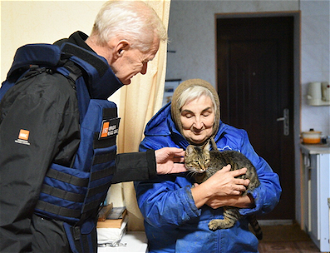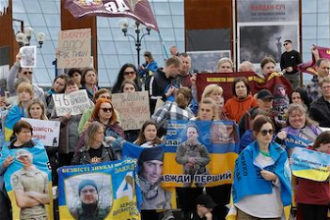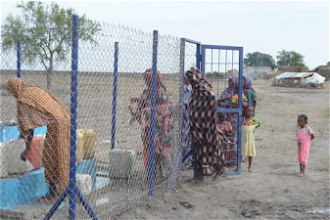Ukraine: Millions face winter in damaged homes, under threat of air raids, beyond reach of aid

Jan Egeland visits with elderly lady in her damaged home near Kharkiv. Image: NRC
Source: NRC, ACN
Millions of civilians in Ukraine are living with the effects of over 600 days of brutal conflict. As winter conditions develop and needs multiply, once-thriving communities are at risk of disintegrating under an increasingly protracted conflict, warns the Norwegian Refugee Council (NRC).
Across eastern and southern Ukraine, millions of civilians are facing an increasingly uncertain and dangerous future as winter conditions set in. For over 600 days, an unyielding barrage of shelling has left an estimated 1.4 million homes in ruin or disrepair. Thousands of families have been forced to flee, or have been left to shelter in damaged buildings lacking basic services. Millions remain out of reach of aid in Russian controlled areas. As temperatures drop and public services come under increasing pressure, at least 2.5 million people need vital humanitarian assistance to support them through winter.
"Millions of families are facing a growing winter nightmare here," explained Jan Egeland, NRC Secretary General, on a visit to Ukraine this week. "The physical impact of aerial bombardment can be seen right across the towns and cities I have visited. And the mental impact on those who remain under this ever-present threat is just as striking. People have told me about the horror of watching their communities transformed into sites of destruction or battlegrounds.
"While glimpses of stability emerge in pockets of the country, the humanitarian landscape in the east and south remains bleak and is defined by relentless hostilities and fighting along the frontlines. We are deeply concerned for the future of those millions who are already dependent on support, given that winter has barely begun."
In the 20 months since the escalation of the conflict, Russia has fired thousands of drones and missiles on Ukrainian cities and settlements. Hundreds have been used to destroy civilian infrastructure relating to transport, heating, and electricity. Port facilities in the south have continued to be targeted since the end of the Black Sea Grain Deal, with over 30 attacks since July. Today, more than 17 million people are affected as a result of these attacks, at a point in the year at which needs greatly increase.
Despite a significant humanitarian effort, large swaths of Ukraine are under the control of the Russian Federation and remain largely out of reach of international aid. Ongoing hostilities also continue to hamper the delivery of assistance. Security concerns impede the delivery of urgent assistance to more than four million people who live in the areas beyond the control of the Government of Ukraine. "The information we receive through partners and colleagues paints a picture of appalling conditions facing those beyond the reach of humanitarian workers. It is more urgent than ever that all parties ensure that civilian populations can be reached by humanitarian aid," said Egeland.
"I call upon all parties involved to ensure the unimpeded and timely delivery of humanitarian assistance to all affected areas, regardless of their control. It is our moral duty to extend a lifeline to those in dire need and to work resolutely toward sustainable solutions that can bring an end to the suffering endured by the Ukrainian citizens residing in conflict-affected communities.
"Swift and decisive action is imperative to prevent this crisis from deepening, in the name of these communities and the future of those who have already endured so much."
Amy Balog from Aid to the Church in Need UK commented: "I visited western Ukraine last month to document many of Aid to the Church in Need's projects. With winter approaching and airstrikes targeting the country's energy infrastructure expected yet again, they need our help more than ever.
"During my trip, I had the chance to speak to many people who expressed their gratitude to ACN for helping them keep warm last winter (by providing generators and paying for heating costs) when power outages occurred daily. While they are stoic about the coming months, there are worries about how they will survive the harsh winter. Most of those I spoke to see no end in sight for the war and seem to have already adapted to a new way of life. I even met IDPs who lost their homes in eastern Ukraine and are now relying entirely on the Church for shelter and food."
17.6 million people - over a quarter of Ukraine's population - were estimated to be in need humanitarian aid and protection services in 2023.
The Humanitarian Needs Overview 2023 estimated more than 4 million people were living in the areas under the control of the Russian Federation. Due to continuing changes in the frontline areas over the last 20 months, those numbers might have changed.
2.5 million people have been identified has needing specific winterization support, including livelihoods and food security, shelter and water and sanitation (OCHA).
Ongoing hostilities also continue to hamper the delivery of aid. In 2023, nine NGO workers were killed and 52 incidents affected NGOs, with Russian air, missile and artillery strikes accounting for half of them across Ukraine.
1.4 million housing units have been damaged over one-third of the damaged units are destroyed.





















